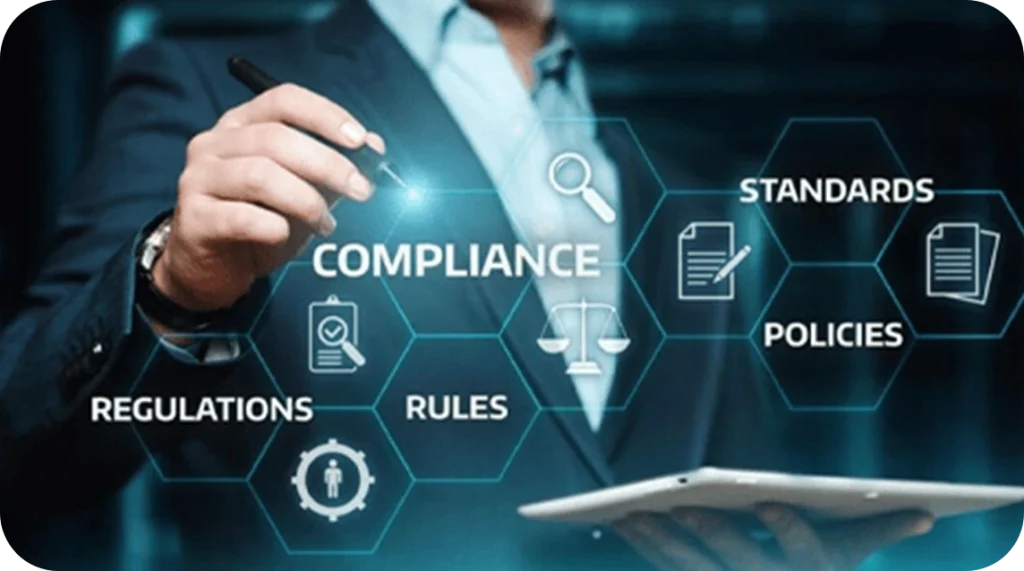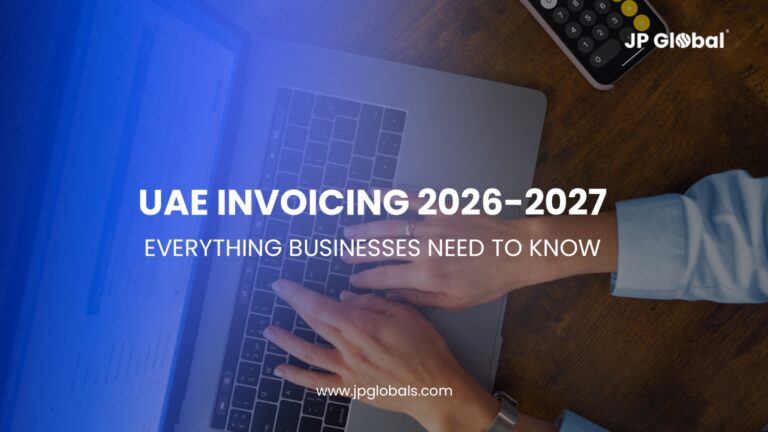Understanding UAE Economic Substance Regulations (ESR): A Comprehensive Guide
Authored by
JP Global
Date Released
November 27, 2025
Comments
As the deadline for filing the annual Economic Substance Regulations (ESR) notification with the regulatory authority approaches, companies in the United Arab Emirates (UAE) find themselves faced with the critical task of assessing whether they are engaged in any of the relevant activities outlined by the UAE Economic Substance Regulations. Compliance with ESR is now mandatory, making it crucial for companies to gain clarity on these activities and seek professional assistance from ESR service providers in Dubai, UAE.
List of Relevant Activities Under UAE Economic Substance Regulations
Determining whether a company is undertaking a relevant activity in the UAE is paramount for ESR compliance. There are nine defined economic activities under ESR that businesses need to consider. It’s important to note that companies must evaluate not only the activities listed on their trade licenses but also the activities they engage in during a financial year. Let’s delve into these relevant activities:
1. Banking Business
The ESR identifies Banking Business as a relevant activity encompassing businesses that accept cash deposits, offering withdrawal on demand and using these deposits for various financial activities such as providing loans, advances, guarantees, or investments. Core Income Generating Activities (CIGA) within banking business include raising funds, managing risk (credit, currency, interest), taking hedging positions, providing financial services, managing capital, and preparing reports for investors or government authorities. Notably, currency exchanges, remittances, and financial intermediaries are not considered Banking Business under the UAE ESR.
2. Insurance Business
Insurance Business under ESR covers companies that accept risks through insurance contracts, both in life and non-life categories, including reinsurance and captive insurance arrangements. CIGA within insurance business includes predicting and calculating risk, insuring or re-insuring against risk, underwriting insurance and reinsurance. Entities involved in insurance-related services that do not involve the insured risk, like insurance brokers and agents, are excluded from this definition.
3. Investment Fund Management Business
Entities providing discretionary investment management services, such as investment, disinvestment, and risk assessment, fall under Investment Fund Management Business. Businesses solely involved in fund administration, custodian, or investment advisory services are not classified as Investment Fund Management Businesses under ESR. CIGA in this category include making decisions on investments, calculating risk and reserves, hedging positions, and preparing reports for investors or government authorities.
4. Lease-Finance Business
Lease-Finance Business includes UAE companies offering credit or financing services. This involves providing loans, entering into finance leases for non-land assets, and offering credit through hire purchase agreements or other financial arrangements. Banks, insurance companies, and investment fund companies that also provide lease financing services are not considered Lease-Finance Businesses under ESR. CIGA within this category include agreeing to funding terms, acquiring assets for leasing, setting financing/leasing terms, monitoring agreements, and managing risks.
5. Headquarters Business
Companies providing services to foreign group entities and being responsible for the group’s overall success and performance qualify as Headquarters Businesses. Such services must encompass senior management responsibilities and the assumption of material risks associated with the foreign group’s activities. These businesses are distinct from those in banking, insurance, investment fund management, and lease-finance sectors, which also provide headquarters services but are not separately subject to ESR requirements. CIGA within this category involve taking management decisions, incurring operating expenditures for group companies, and coordinating group activities.
6. Shipping Business
Companies operating multiple ships for international passenger or cargo transportation are required to demonstrate economic substance under Shipping Business. Ships used for leisure or fishing and smaller vessels are excluded from the ESR definition of shipping business. CIGA within shipping business include managing crew, maintaining ships, overseeing shipping operations, and making decisions related to goods transportation.
7. Holding Company Business
Holding Company Business, per ESR, involves holding shares or equitable interests in other companies without engaging in any commercial activity. Holding companies fitting this narrow definition must demonstrate reduced economic substance, but those involved in other commercial activities or owning investments/assets must meet increased ESR requirements. CIGA in this category focus on holding shares in other companies.
8. Intellectual Property Business
Businesses in the UAE holding, exploiting, or earning gross income from intellectual property assets, such as patents, copyrights, trademarks, and brands, qualify as Intellectual Property Businesses under ESR. Income from these assets can come in the form of royalties, license fees, franchise fees, capital gains, or income from intellectual property asset sales. Companies that own intellectual property assets without earning separately identifiable income from them are excluded from this definition. High-Risk IP Businesses are identified when the IP asset wasn’t created by the UAE entity, was acquired from a foreign entity, or generates separately identifiable gross income from a foreign group company.
8. Distribution and Service Centre Business
Distribution and Service Centre Business includes two separate relevant activities: Distribution Business and Service Business. Distribution businesses purchase raw materials or finished goods from foreign group companies and distribute them. Service Centre Businesses offer consultation, administration, and related services to foreign group companies related to their business outside the UAE. CIGA under Distribution Business involve transporting and storing goods, managing inventories, and taking orders, while Service Centre Business CIGA focus on providing consultation and administration services.
ESR Compliance Services by JP GLOBAL LLC
Compliance with the UAE’s Economic Substance Regulations is mandatory for all UAE companies, except those with significant government ownership. JP GLOBAL LLC provides essential services to assist companies in navigating these regulations:
- Determining ESR Applicability: JP GLOBAL LLC helps companies assess whether they are subject to Economic Substance Regulations.
- ESR Notification Filing: JP GLOBAL LLC supports companies in filing the annual Economic Substance Notification with regulatory authorities.
- Economic Substance Report Preparation: JP GLOBAL LLC assists in preparing and submitting the annual Economic Substance Report to authorities.
- Recommendations for Compliance: For companies not meeting Economic Substance requirements, JP GLOBAL LLC offers recommendations and guidance to achieve compliance.
In conclusion, understanding and complying with the UAE Economic Substance Regulations is crucial for businesses operating in the UAE. Seeking professional assistance from experts like JP GLOBAL LLC can help companies navigate the complexities of ESR and ensure compliance with these regulations. Failure to meet the economic substance test could result in substantial fines, making it essential for companies to proactively address their ESR obligations.






